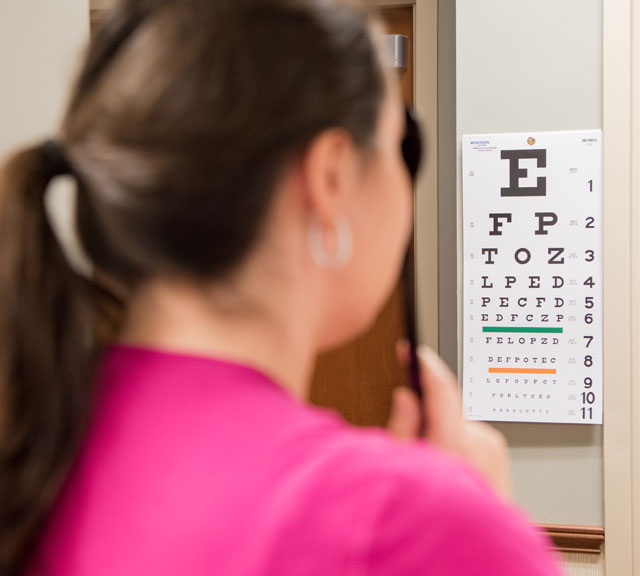Preventing 8 Common Diabetes Complications

Find Your Perfect Match
Answer a few questions and we'll provide you with a list of primary care providers that best fit your needs.
If you have diabetes, there’s good news and bad news about the complications you may experience. As the seventh leading cause of death for Americans, uncontrolled diabetes has a negative impact on many major body systems. It takes its toll on the blood vessels, kidneys, nerves, and vital organs. And the longer you’ve had diabetes, the more likely you are to have problems.
What’s encouraging is that most complications can be prevented.
“With good blood sugar control, you can prevent complications from uncontrolled diabetes. There are so many advances in diabetes treatment, we have more ways to manage these effects than ever before,” says Tammy Dellaposta, RN/BC, CDE, certified diabetes educator. These include many more medications to control diabetes.
Prevention is the key, she stresses, and if you have diabetes, she strongly encourages you to control your blood sugars and see your doctor for blood work and screenings.
“Every day, it’s a choice. If you make that choice, you can live a longer, much healthier, better quality of life.”
Common Complications
Uncontrolled diabetes can affect you from head to toe. Some of the most common complications of diabetes, notes Dellaposta, are:
1. Heart and blood vessel disease. People with either type 1 or type 2 diabetes are twice as likely as the rest of the population to have heart and blood vessel disease.
Extra sugar in your blood vessels makes them inflamed, thick, and hard over time. It also can increase the pressure in your blood vessels, known as high blood pressure. Unhealthy vessels can lead to heart attack, stroke, and organ dysfunction.
2. Kidney disease. The kidneys filter blood so that the body keeps healthy nutrients and gets rid of waste products. Diabetes can damage the filtering process over time. Controlling blood sugars and blood pressure is essential to keeping the kidneys working well.
3. Nerve problems. Nerve damage in your hands and feet is called peripheral neuropathy and can cause pain, numbness, burning, or stinging. Up to 70 percent of people with diabetes have some form of neuropathy in their hands or feet.
Nerve damage also can occur in organs that control body functions without conscious thought. Your heart, stomach, and bladder are just a few that can be affected.
4. Eye problems. People with diabetes have a 40 percent greater risk of glaucoma (pressure in the eye that can cause blindness if left untreated). Diabetic retinopathy (vision problems linked to damaged blood vessels) is the leading cause of blindness in working-age adults.
“My grandfather was blind because of complications from diabetes. Unfortunately, we didn’t have the advances in treating diabetic retinopathy then that we have today,” Dellaposta says.
Take care of your eyes, she urges. Call your eye doctor about any change in your vision.
During an eye exam, your doctor can detect damage to microscopic blood vessels behind your eyes. Then together you can take action to stop the progress. If you have diabetes, she advises you have a dilated eye exam every year.
5. Foot problems. In your feet, peripheral neuropathy can cause numbness that makes it difficult for you to detect a blister or sore on your foot. Wounds can worsen and increase your risk of infection, especially in the presence of high blood sugars. Numbness also impairs your balance and can increase your risk of falling.
Check your feet daily, don’t go barefoot, and make sure your shoes fit well. Dellaposta also advises you to clip toenails after bathing when they are soft and easier to trim. And do not clip off corns or callouses yourself, she cautions. She also advises not to soak your feet, but do use lotion to keep skin from becoming too dry.
6. Mouth issues. If you have high blood sugars, the sugar is present in your saliva and increases plaque. They make you more prone to gum disease and cavities, so it’s important to visit your dentist once or twice a year for a checkup and cleaning.
7. Skin issues. If you have diabetes, some skin wounds are hard to heal and can lead to infection. Overgrown yeast on your skin can become an itchy fungal infection. See a doctor if you have wounds that aren’t healing, a rash, or skin that is swollen, has red streaks, or is hot to touch.
8. Pregnancy complications. Having diabetes while you are pregnant also can create complications if you don’t keep your blood sugar under control. Preterm labor, preterm delivery, and a baby with a high birth weight, jaundice, or breathing problems are common problems if your diabetes isn’t well controlled.
Tips For Preventing Complications

Dellaposta is amazed at the advances helping people with diabetes live better and longer.
She says important steps to minimizing the effects of your diabetes include:
- Control your blood sugars. Monitor your blood sugars and share your numbers with your doctor and diabetes educator.
- Take your medicines as prescribed.
- Maintain a healthy diet.
- Exercise at least 150 minutes a week.
- Don’t smoke, which increases your risk for every complication.
“If you take control of diabetes, you can prevent blindness, amputation, and other complications,” Dellaposta says. “It’s exciting when people take an active role and educate themselves.”
She highly recommends keeping up with health checks recommended by the American Diabetes Association. Those include yearly dental and eye exams, a cholesterol check, and flu shot. Regular foot exams, blood pressure checks, and HbA1C blood tests are also important.
“Every day, it’s a choice. If you make that choice, you can live a longer, much healthier, better quality of life.”
Find Your Perfect Match
Answer a few questions and we'll provide you with a list of primary care providers that best fit your needs.
Source: Tammy Dellaposta, RN/BC, CDE, Certified Diabetes Educator, Diabetes Wellness Center at Atrium Medical Center; American Diabetes Association





